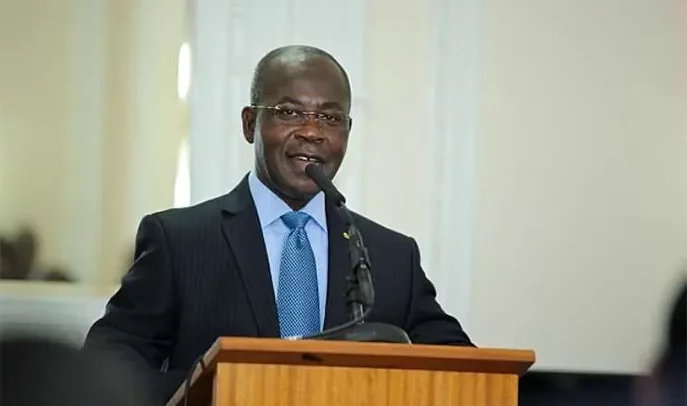Professor Kwaku Danso-Boafo
Government has directed all Ministers of State to strictly adhere to established Cabinet procedures before announcing or implementing new government policies.
This directive follows concerns raised by the Minority in Parliament about several major national programmes, which official documents have not been submitted to Parliament for scrutiny.
In a circular dated yesterday, and signed by the Secretary to Cabinet, Professor Kwaku Danso-Boafo, ministers were cautioned against the “growing practice” of publicly announcing major policy initiatives purportedly on behalf of government without prior Cabinet approval.
According to the circular, no public policy, programme, or major initiative shall be deemed a government policy unless it has been formally submitted to, deliberated upon, and approved by Cabinet.
It reminded ministers of the principle of collective responsibility enshrined in the constitution, which requires that all official government decisions emanate from Cabinet consensus.
“For the avoidance of doubt, Ministers are respectfully requested to ensure that all proposed policies, programmes, or legislative initiatives intended for public announcement or implementation are first submitted to the Cabinet Secretariat, through the Chief Director of their respective Ministries, for inclusion on the Cabinet agenda and subsequent consideration by Cabinet,” the statement said.
The directive, the circular noted, aims to “safeguard policy coherence, uphold collective Cabinet responsibility, and ensure that all Government communications and actions reflect the unified and approved position of the Administration.”
Ministers were therefore warned to refrain from announcing or implementing any policy that has not been vetted and approved by Cabinet, stressing that any such actions or pronouncements would not represent official government policy.
“Ministers are advised to be guided accordingly,” Professor Danso-Boafo’s directive cautioned.
This comes in the wake of criticism from the Minority in Parliament, which accused some government officials of implementing or announcing as many as 11 government programmes that had not received parliamentary scrutiny.
The Ranking Member of Economy and Development Committee and Member of Parliament (MP) for Ofoase-Ayirebi, Kojo Oppong Nkrumah, said these initiatives include the One Million Coders Programme, 24-Hour Economy Initiative, Jobs Export Programme, Adwumawura Project, National Apprenticeship Programme, Tree for Life, Accra Reset Programme, One Child-One Tree, Ghana Infrastructure Plan, Free Tertiary Education for Persons with Disabilities, and the No Fee Stress Programme.
The Minority argued that such actions undermine transparency, accountability, and constitutional governance.
Mr. Oppong Nkrumah explained that although these programmes have been featured prominently in government communications and on national platforms, they have not been accompanied by programme documents outlining their objectives, selection criteria, funding frameworks, or performance indicators.
“These are initiatives that have been launched, and ministers have received hundreds of millions of Ghana cedis to execute them,” the New Patriotic Party (NPP) MP said.
“But not one of them has had a programme document presented to Parliament. So how do we know the targets, the beneficiaries, or the performance benchmarks? Without these documents, Parliament cannot perform its oversight role effectively,” he intimated.
By Ernest Kofi Adu


